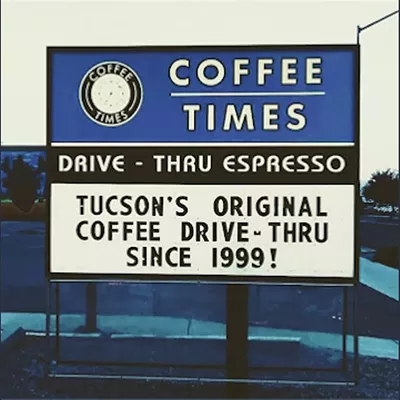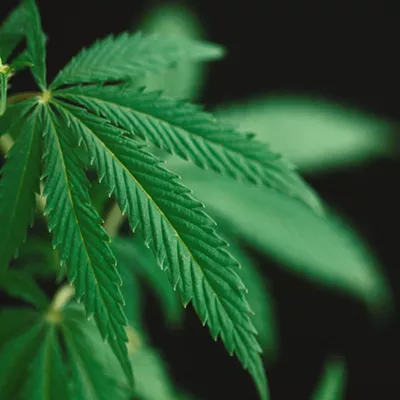If you blinked, you may have missed the commotion over cannabis in Phoenix during the first week in October. The short of it is that Phoenix Mayor Thelda Williams drafted a new tax plan in the dead of night that could have had extreme consequences for dispensaries.
The tax could have been based on 17 percent of a dispensary's total revenue the previous year, or flat-rate taxes of $560,000 on dispensaries and $920,000 on cultivation sites.
If it's not already apparent, those numbers are astronomical and would have driven all but the biggest dispensaries out of Phoenix if not out of business altogether.
The tax failed a Phoenix City Council vote Tuesday, Oct. 2, but it still represents the latest in a long line of assaults faced by the Arizona cannabis industry. For a lot of dispensary owners, constantly being on guard is, well... taxing.
The tax caught the attention of dispensary operators from around the State of Arizona due to the consequences such a plan may have had on other municipalities in the state.
Moe Asnani, president of Downtown Dispensary and D2, was back and forth between Tucson and Phoenix leading up to the vote.
"We're constantly under attack and it's very frustrating," he said.
But the concern goes beyond potential new taxes.
In 2018 alone, the cannabis industry struggled through the legislative session, got blindsided by an Appeals Court ruling that made concentrates illegal and had to act quick to shut down an insane tax in Phoenix.
Late in the legislative session this year, the director of NORML's Arizona branch, Mikel Weisser, griped about a meeting between select dispensary representatives and Gov. Doug Ducey.
The meeting, he said, spelled the end for the 24 bills NORML had worked on for the past year, which included mandatory testing, lower card fees and other reforms to the Arizona Medical Marijuana Act.
"Neither our legislative sponsor, popular conservative Republican Sen. Sonny Borrelli, nor our organization, nor the lobbyists for the AZ MITA (Marijuana Industry Trade Association, our longtime allies) was invited," Weisser wrote in an email to industry leaders.
The meeting was held by representatives of the Arizona Dispensaries Association, DeMenna Public Affairs, as well as a few key ADA members like ADA President Mark Steinmetz, who runs Nature's Medicine in Phoenix, and Ryan Hurley, general counsel for Copperstate Farms in Snowflake.
While DeMenna Public Affairs represents the bulk of dispensaries, Asnani said several dispensaries seek their own lobbyists. That could be a problem if everyone's not on the same page, like during the legislative session.
The ADA has already begun initial efforts to draft an initiative to legalize adult-use recreational cannabis in 2020.
"This is going to be very much an Arizona-led effort," said ADA lobbyist Joe DeMenna. "The Arizona dispensaries are going to be the ones very much with the reins on this next effort."
Though the DeMennas have never run an initiative campaign before, they're confident they'll be in the driver seat for 2020, which, given a history with Ducey, could prove a huge boon for the industry.
And this time, the stakes might be high enough to motivative more compromise in a legalization initiative.
"What [people] don't understand is that this is a very competitive business," Steinmetz said. "It takes a ton of capital to get going and most of us who have in this industry for five years still haven't seen a return on capital."
With low profit margins and a lot of revenue going back into capital improvements like new stores or cultivation sites, a lot of dispensaries are holding out for adult-use recreational cannabis to start realizing the desired returns.
The biggest fear, from organizations like NORML and Arizonans for Marijuana Reform, is that dispensaries will lock down the number of licenses very close to the number that already exists, barring those who may be interested in breaking into the industry.
Arizona already has one of the lowest patient-to-dispensary ratios among states with legal cannabis, behind just five other states, including Oregon and Colorado.
Weisser estimates a total of about 700,000 potential users should recreational cannabis become legal in Arizona.
Steinmetz thinks the current number of dispensaries could meet that demand given the industry's current over-production of cannabis, but limitation like the square footage of dispensaries limits their scale, he said.
The initiative will undoubtedly call for the distribution of additional licenses, but the question remains: How many? And who will help decide that number?
"If we widen the funding base, we widen the group of people at the table discussing it," Weisser said.
An earlier version of this story misrepresented MITA's position on the 2020 ballot initiative. MITA's stance is to remain an impartial supporter of the Arizona cannabis industry.







